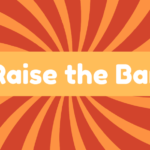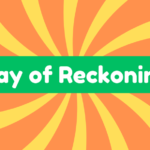"You rock" means you're doing something great or impressive. This phrase comes from the vibrant rock music scene of the 1950s. Over time, it transformed into a broad expression of appreciation. For instance, you might say, "You rock at problem-solving!" to highlight someone's skills. It's versatile, resonating across ages, and keeps its relevance today, especially in digital conversations. Using it can uplift spirits, but be cautious of overuse; phrases like "you shine" or "you're incredible" can also convey similar praise. If you're intrigued, you might find some surprising insights about its impact in modern communication.
Synonyms
When you want to express how amazing someone is, "you rock" can easily be replaced with several synonyms. While it's a cool expression, expanding your vocabulary not only enhances your communication skills but also shows exceptional praise. Here are some stellar alternatives:
- "You shine."
- "You're incredible."
- "You slay."
- "You're a superstar."
Using these phrases enriches your interactions, offering deeper appreciation. However, keep in mind that language evolves, and relying solely on "you rock" might come off as cliché. It's essential to match your words to the situation and the individual's contributions accurately. After all, innovation in communication reflects modern relationships, so explore these variations for a fresher, more engaging impact on those around you.
Example of Sentences
Expanding your vocabulary with synonyms is great, but sometimes the classic phrase "you rock" hits just right. It's a versatile expression that captures admiration and motivation without sounding overly formal. Here are some examples to inspire you:
- "You rock when you nail that presentation!"
- "Your creativity shines — you rock at brainstorming ideas!"
- "When you helped me study, you truly rocked my world."
- "You rock for supporting your friends, no matter what."
Using these creative phrases as motivational expressions can enhance your interactions. Whether you're cheering someone on or expressing thanks, "you rock" conveys energy and positivity in a simple, relatable way. So, don't hesitate to incorporate it into your conversations!
Origin
Originating from the vibrant world of rock music, the expression "you rock" reflects the energy and excitement that characterized the genre. Its roots can be traced back to the emergence of rock and roll in the 1950s, which embraced rebelliousness and a new cultural evolution. Initially synonymous with dance music in the 1920s, the phrase transformed over time, capturing a sense of skill and enthusiasm by the 1960s. This shift mirrors the dynamic nature of rock music itself. While it may seem casual now, understanding its origins reveals how music can shape language and attitudes in society. "You rock" has evolved into a staple of encouragement and appreciation, proving that simple expressions can carry deeper meaning.
Collocations
Collocations related to the phrase "you rock" highlight various contexts in which it thrives. Understanding these can deepen your appreciation for how it's used, especially in the domain of social media and motivational phrases.
- "You rock my world" presents an emotional bond.
- "You rock at [activity]" emphasizes skill and competence.
- "You rock on social media" showcases your online presence.
- "You rock the challenge" motivates resilience in tough situations.
While it might seem superficial, these collocations can genuinely uplift and inspire. Just remember, overusing them might dilute their original impact. So, use them wisely to promote positivity while steering through your everyday interactions!
How to Use in Everyday Language
Using the phrase "you rock" in everyday language can truly elevate your conversations and relationships. You can casually drop it after a friend's achievement, like acing a test or finishing a project, providing them with casual encouragement. Think about how it can turn a simple thank you into a moment of positive reinforcement. However, don't overuse it; sound genuine to maintain its impact. For instance, don't just say "you rock" because it's trendy—use it when someone genuinely impresses you. This approach adds authenticity to your communication while fostering a supportive atmosphere. Being intentional with your words might just strengthen your bonds, making those cherished interactions more meaningful in the long run.
Why Is It Still Relevant Today?
The phrase "you rock" remains relevant today because it captures a universal sentiment of appreciation and encouragement that resonates across all ages. Its cultural relevance lies in how effectively it serves as an expression of enthusiasm, energizing conversations and fostering connection. You might think it's just a cliché, but its power lies in its simplicity and versatility. With the rise of social media and digital communications, "you rock" efficiently bridges gaps, encouraging friendships and support in a fast-paced world. While some might argue that its overuse dilutes meaning, it still maintains impact when used genuinely. Ultimately, "you rock" remains an essential part of modern expression, continuously adapting while fostering positivity in your interactions.







